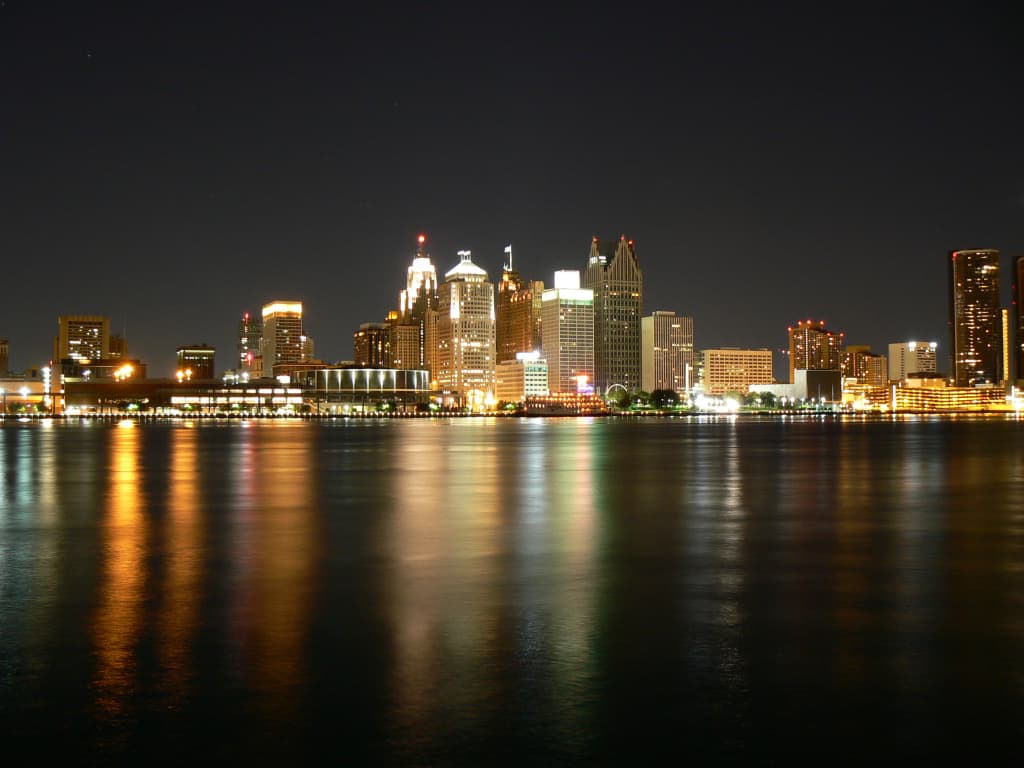
It doesn’t seem to matter what age we live in, Detroit defines it. The city is a sort of canary in the national coal mine, and its fate tends to foreshadow that of the nation. When the U.S. rode the automotive revolution, Detroit hit the biggest boom of all. When crime spiked in the ‘80s and then fell in the ‘90s, the effects were most exaggerated in Detroit. Its financial downturn was a prelude to a much more widespread struggle in the U.S. auto industry, and the city became known for its increasingly abandoned outskirts. Once the fourth-largest city in the United States, it became a symbol of the urban decay that many feared would define the coming decade.
Yet there is an advantage to being the national canary, too: when the country begins to hit an upswing, Detroit is the place it manifests first. Today, Detroit is invested with the dignity of the underdog, a long-suffering determination that has come to define its resurging brand. Chrysler aired a commercial during the 2012 SuperBowl that gloried its blue-collar history in the city and debuted a new corporate slogan: Imported From Detroit. Its history makes Detroit a symbol of pride in American craftsmanship, and of support for American labour.
A visit to Detroit today bears essentially no resemblance to one ten years ago. The city still hosts sizable areas of abandoned residential space, but the collapsed communities are being slowly cleaned and repopulated. Everywhere, the city has worked to fix whatever problems made it so difficult for many travellers to enjoy its numerous unique virtues. Detroit’s tourism industry itself has rebounded to almost 10% of overall employment - suddenly, the city seems to have remembered that it is a major cultural centre of the world’s major cultural centre.
As with any city that hopes to appeal to tourism, Detroit has a strong tradition in food. Known for chilli-drowned hot dogs and dripping pizza, Detroit takes American comfort food to the level of cultural phenomenon. As with so much of the city’s modern appeal, the food is simple and honest. It is Americana, as unadulterated as possible.
The city’s once unmatched status in the music scene is slowly returning as well, and it hosts some premiere genre festivals, from the Electronic Music Festival to the Motown Winter Blast. Music history, much of which emanates from Detroit, is also a growing attraction, and recent expansions to the Motown’s Hitsville USA museum are drawing increasing attention. The arts are growing generally in the comeback metropolis, in fact, with many local exhibits directly addressing the topic of Detroit’s ever-changing place in the world. The Detroit Institute of Arts is hosting a photography exhibit called Motor City Muse which explores just what makes the city so special, and such an immovable part of the American zeitgeist. The city’s involved community and interest tourists regularly attract the country’s premiere exhibitions, and draw some of the biggest crowds of any art events in the world.
At its heart, though, Detroit is still a car-centric community. Between the multiple automotive museums, and the half-dozen or so car shows that regularly pack the city’s open lots and convention centres, there’s little doubt that this is still the car capital of the world. Millions come to view the past, present, and future of one of the world’s most important industries. With 2013 marking the 150th birthday of Henry Ford, travellers can only expect this focus to intensify. For car fanatics, there is literally no city more defined by automobiles than Detroit.


